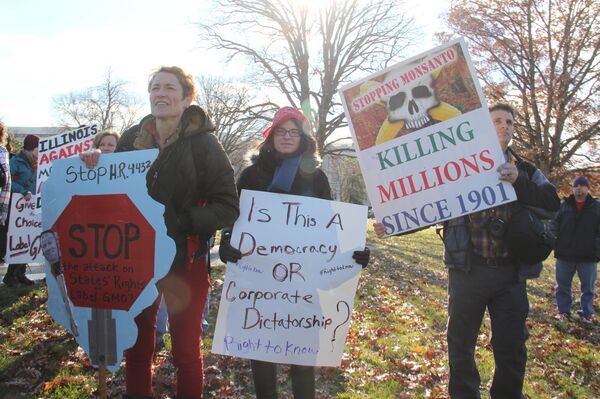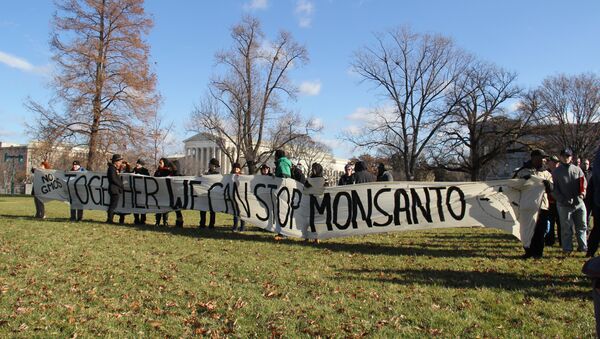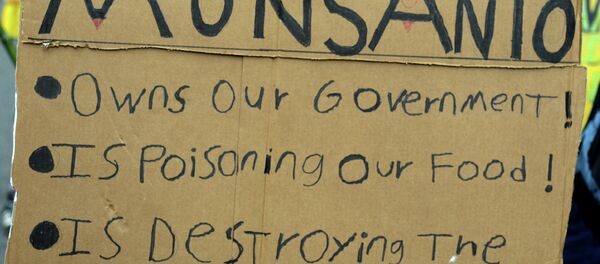The bill’s official title is the Safe and Accurate Food Labeling Act of 2014. However, activists complain that the bill would prevent the Food and Drug Administration from requiring companies to label food with genetically engineered ingredients. On top of that, it would outlaw states from requiring labels as well.
This doesn’t sit well with activists who bussed in to D.C. from all over the country.
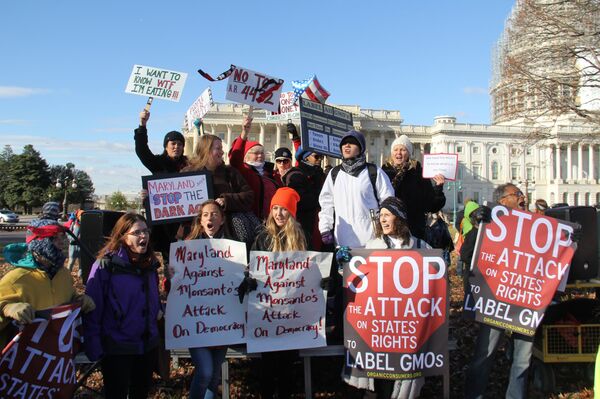
“We have a right to what’s in what we’re eating, what choices we’re making,” Tim Norton, who arrived from Indiana, told Sputnik.
“I am not anti-GMO. I support research. I support science. But, it belongs in a laboratory. It isn’t time-tested.”
Amber, an 11-year old who came to Washington with her mother from Massachusetts, told Sputnik GMO shouldn’t be what’s for dinner.
“I care about what’s in my food,” Amber said. “I don’t want human DNA in my rice. That’s a thing. I don’t want tomatoes to have fish DNA in them because that’s disgusting.”
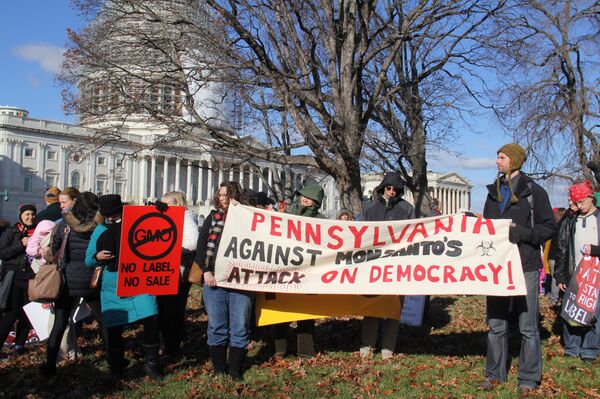
The sponsor of the bill, Republican Mike Pompeo, received $92,000 from agribusiness in the last election cycle. Pompeo represents Kansas, where farms and agriculture are major campaign contributors, but Pompeo also received about $117,000 from Koch Industries.
Koch Industries and Monsanto are both members of the Grocery Manufacturers Association (GMA) and together have fought state labeling initiatives around the country. The GMA also gave Pompeo the maximum direct contribution of $10,000.
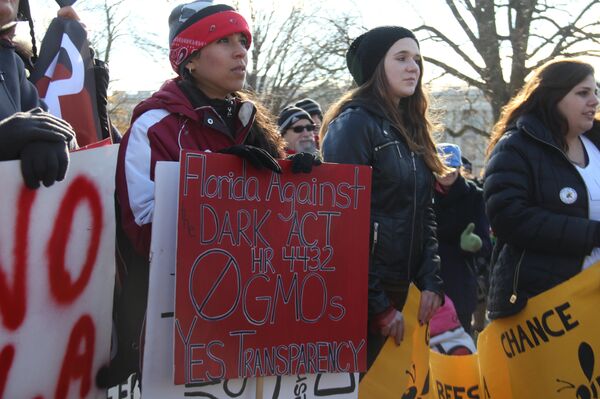
The GMA also recently filed suit against a Vermont labeling law passed to go into effect in 2016. However, a bill such as the so-called Dark Act would render such suits unnecessary.
“If this bill is signed into law, it would undo all of the democratic process that went on in that state to get that passed,” Norton pointed out.
A New Jersey teacher who gave her name as Ms. Bryant thought the bill even seemed unconstitutional in terms of federal overreach.
“The federal government is telling the states what to do and that’s not how it started out to be,” Bryant told Sputnik.
Still, her concerns are more about the right to know what she and her 9-year-old grandson eat.
“There may be technically nothing wrong with it but I would like the option to get food that’s non-GMO,” she said. “As a consumer there isn’t a reason we shouldn’t know what’s in what we eat.”
Amber would simply rather not have any of it.
“Why are we putting different DNA in food? Yuck.”
